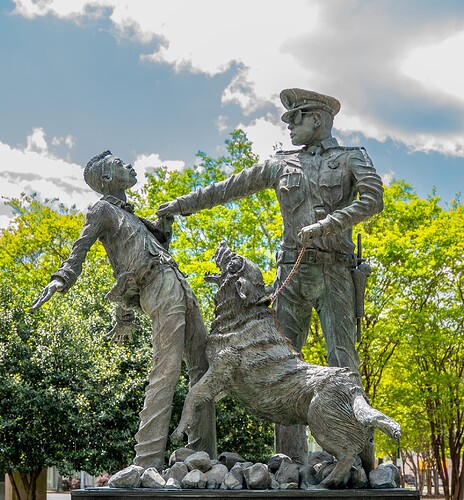When my kids were younger, they loved to go to a local park and play a combo tag and hide-and-go seek game. But one time, I did too good of a job hiding, and my kids started to wander around, looking in every direction to see where Dad was.
I could tell the game had gone from a fun adventure to a scary concern. I quickly stood up and called out their names. Immediately, they recognized the chase was back on, and excitedly ran after me again.
When someone we love calls out our name, our perspective instantly changes.
Psalm 100 reminds us who we are: “We are his people, and the sheep of his pasture.”
When we feel confident that God made us, cherishes us, and cares for us, the natural response is joy, worship, and gratitude.
But our circumstances can make it hard to remember, or experience, that God cares for us.
In Jeremiah 50, the prophet states, “Israel is a hunted sheep driven away by lions.” One foreign king after another has ravaged God’s people, to the point of “gnawing on their bones.”
Nothing worth having is left.
It raises a raw question: how does God care for us if he allows our enemies to oppress us?
When you don’t know how you will pay your bills, find a job where you aren’t sexually harassed, or reconcile with a child who has ghosted you, how is God demonstrating that he is a good shepherd?
In John 10, Jesus is in a precarious situation: his enemies “took up stones again to stone him.”
I recently visited Kelly Ingram Park in Birmingham. It’s named after a fireman, but ironically, it was also the site where firemen blasted children with high-pressure fire hoses during the modern Civil Rights movement. K-9 units let their dogs maul peaceful women and children.
Walking through the park deepened my admiration for the protestors’ commitment to non-violence. And it reminded me of the Shepherd who set the standard for us.
Jesus reminds them: “I have shown you many good works from the Father. For which of these are you going to stone me?”
Though his opponents intended evil, Jesus could honestly point to his track record of doing good.
The same Shepherd God who promised to care for his sheep in Psalm 100 and Jeremiah 50 (and many other times) has become one of the sheep.
Jesus is vulnerable, exposed, defenseless against the wolves.
Though he escapes this attempt to arrest him, we know that he would eventually allow himself to be taken into custody, then falsely imprisoned, condemned, tortured, and executed.
So where are we in the story?
First, Jesus shows us that our security isn’t based on our circumstances.
We know that Jesus accepted the greatest humiliation, suffering, and evil. He paid the price for our sin.
But even though he was crucified, he remained God. Beloved. Glorious. Alive. Forever.
As he told the crowd, “the Father is in me and I am in the Father.” His union with God, as God, was unbreakable.
Because we are now united to Christ, we may have the same confidence. No matter what we suffer in this life, or when or how it ends, we can remain confident, by faith, that our identity and future is secure.
Second, it means God is greater than our circumstances.
When Jesus faced the threat of stoning, he knew he was still God’s beloved Son.
The way to face difficult circumstances is by reminding ourselves of our God-given identity and God’s promised presence with us.
Third, we need to hear God’s voice every day.
When my kids felt lost at the park, it was because they couldn’t see or hear me. From their perspective, I was absent. They were on their own.
The truth? I was just beyond their line of sight. And when they saw that I was close, calling their name, and ready to play, they were overjoyed.
When we feel like we are what we do, how many likes we have, how much is in the bank, where we work, or how beautiful we are, our sense of identity, security, and value is unstable.
Our sense of security fluctuates whenever our circumstances change.
But when we hear God speak to our hearts, everything is at peace:
“You are mine. I know you. I love you. Follow me.”
When was the last time you felt like a hunted sheep?
What would it look like today to quiet the noise and listen for the Shepherd’s voice?
The God who calls us to worship in Psalm 100 is the same God who promises restoration in Jeremiah 50 and who delivered on that promise by becoming Incarnate.
Maybe it’s hard to see him, but listen to the Spirit: he’s calling our names.
Next Steps:
Connect with God: Open Psalm 100 and read through it in silence. Meditate on it as you ask God to help you recognize his voice.
Create a reminder: Write down Psalm 100:3 and place it somewhere you’ll see this week: “Acknowledge that the LORD is God. He made us, and we are his— his people, the sheep of his pasture” (CSB).
Connect with a friend: Text a friend Psalm 100:3. Ask for prayer, and ask how you can pray for them.
One Sentence To Remember:
When we feel lost, the Shepherd’s voice leads us home.
Today’s Scripture Readings:
- Psalm 100, Jeremiah 50:17-20, John 10:31-42
